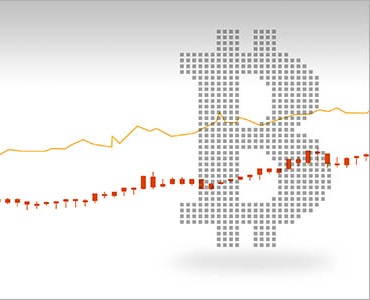A major bipartisan crypto bill will likely not be taken up by the Senate this year, and critics of the proposed legislation may be fine with it as they believe a major redraft of the bill is needed.
In June, Republican Sen. Cynthia Lummis and Democratic Sen. Kirsten Gillibrand introduced a landmark regulatory framework legislation that divides oversight of the crypto market, among other agencies, between the SEC and the Commodity Futures Trading Commission (CFTC). (See Sens. Lummis, Gillibrand Roll out Long-Awaited Crypto Framework in the June 8, 2022, edition of Accounting & Compliance Alert.)
But critics said that the Lummis-Gillibrand bill would put the CFTC largely in charge while sidelining the SEC, which is bigger, more powerful, and effective.
During a public forum this week, the senators reportedly indicated that the bill is more likely to be deferred until next year.
In the view of Rep. Brad Sherman, a California Democrat who is the chair of the House Financial Services Subcommittee on Investor Protection, Entrepreneurship and Capital Markets, the SEC has a large role to play.
The crypto market is complex, and some use cryptocurrency as a method of payment or as a way to store value while others buy it as an investment.
In response to a question about which agency should regulate cryptocurrency during a virtual fireside chat hosted by the Center for Audit Quality (CAQ) last week, Sherman responded that crypto is a hundred different things.
“First, it’s two or three thousand different coins or more. Then it’s derivative. You have an attempt by the so-called stablecoin to be an unregulated money market. Then you have crypto lenders that want to be unregulated banks, in the sense of taking money from deposits and loaning it out at interest and paying interest on the deposits. Then you have bitcoin itself, the other cryptos currencies that attempt to be currencies or some would say just stores of value, not a medium of exchange,” Sherman explained on July 12, 2022.
“So, I think the place for regulation is the SEC because almost everybody I know that’s investing in crypto views it as an intangible investment, and that’s what the SEC does,” Sherman said.
While Sherman did not mention it, the SEC has pointed to the 1946 Supreme Court decision in SEC v. W.J. Howey in explaining why certain cryptos will be regulated by the SEC.
In that case, the high court found that an investment contract exists when money is invested in a common enterprise with a reasonable expectation of profits to be derived from the efforts of others. And Howey applies to any contract, scheme, or transaction regardless of whether it has any of the characteristics of typical securities. The securities laws require all offers and sales of securities, including those involving digital assets, to either be registered with the commission or to qualify for an exemption from registration.
SEC Chair Gary Gensler has often publicly said that most crypto tokens involve a group of entrepreneurs raising funds from the public to make a profit, which is the hallmark of an investment contract or a security.
“If you’re buying something and it’s physical, you can put it in your safe like gold. Okay, the SEC doesn’t deal with that,” Sherman said. “But anything that you can’t put in your safe that is primarily purchased for investment is regulated by the SEC; I think that’s where regulation ought to be of the currency. So, if we’re talking about borrowing and lending, then you also need the bank regulations.”
In public, Gensler has not directly answered questions about what he thinks of Lummis’s bill, saying he will discuss his views privately with them. However, at a conference in June, he was weary of legislative efforts that may end up creating problems.
“My concern with crypto …in legislation is that, in this very technical field, that there might be something done legislatively that undermines current stock exchange, current custodial situation, or mutual funds [who] say, ‘wait, we are to have different regulatory regime for similar things?’” he said at the Wall Street Journal CFO Network Summit on June 14.
“Like behavior should have like treatment,” Gensler said. “We shouldn’t have different treatments.”
‘Crypto Bros’
In the meantime, Rep. Sherman had a low opinion of some efforts in the crypto market.
“I believe crypto has announced when it was created, that its purpose or goal was to undermine the role of the U.S. dollar as a world reserve currency,” Sherman said during the CAQ fireside chat.
The flaw of the U.S. dollar, according to the “Crypto Bros,” is that it is subject to U.S. laws, he said.
“So, if you are in intent on tax evasion, the U.S. dollar is not a good currency. If you are in the drug business, it’s not a good currency. You are sanctions evaders, it’s not a good currency. And if you are thinking down the road, you are gonna break up with your spouse and you don’t want him or her to know how much money you have, it’s not a good currency,” Sherman explained. “So, it’s not a better currency unless you are intent on violating laws.”
This article originally appeared in the July 21, 2022 edition of Accounting & Compliance Alert, available on Checkpoint.
Get all the latest tax, accounting, audit, and corporate finance news with Checkpoint Edge. Sign up for a free 7-day trial today.


